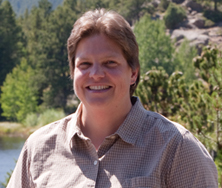
Author Bio:
Renée Pawlish is the award-winning author of the bestselling Nephilim Genesis of Evil, the first in the Nephilim trilogy, the Reed Ferguson mystery series (This Doesn’t Happen In The Movies, Reel Estate Rip-off, The Maltese Felon, and the short story Elvis And The Sports Card Cheat), The Noah Winters YA Adventure series (The Emerald Quest), This War We’re In, a middle-grade World War II novel, Take Five, a short story collection, and The Sallie House: Exposing the Beast Within, a nonfiction account of a haunted house investigation.
Renée has been called “a promising new voice to the comic murder/mystery genre” and “a powerful storyteller”. Nephilim Genesis of Evil has been compared to Stephen King and Frank Peretti.
Renée was born in California, but has lived most of her life in Colorado. When she’s not hiking, cycling, or chasing ballplayers for autographs, she is writing mysteries, thrillers and horror. She loves to travel and has visited numerous countries. She has also spent many summer days at her parents’ cabin in the hills outside of Boulder, which was the inspiration for the setting of Taylor Crossing in her novel Nephilim: Genesis of Evil.
What inspires you to write?
I love taking an idea, maybe just a line or two of dialogue or a scene, and turning it into a complete story. It’s also great fun to create characters and flesh them out: what do they look like, what makes them tick, and so on. And when people say they like what I’ve written, that’s a cool feeling.
Tell us about your writing process.
I am not what you would call a structured writer. Years ago, when authors would say “you have to outline”, I never got that, as I’ve never been able to write from an outline. Then I read a book by an author who said some writers just go with the flow and see where the story takes them. That’s me. I usually start with the threads of a story and I work out the complete story as I go. This does mean more editing, but I also think it makes for a fresh story. Sometimes outlining can mean the writer writes to the outline, and surprises that come up are ignored. And I have really good editors to help me see where my stories might need work before I release them. This is critically important – you won’t see places where your story needs improvement, and you need a qualified editor to help with that.
For Fiction Writers: Do you listen (or talk to) to your characters?
Yes. My characters in some ways become real, like they are a part of my life, so I do listen to them. I will frequently start typing and just let the characters talk, and then I’ll go back and brush up things and take out stuff that doesn’t make sense.
What advice would you give other writers?
Don’t assume that the first novel you’ve written is automatically a masterpiece. Too many writers these days don’t realize that it takes a ton of time (we’re talking thousands of hours) in order to really learn how to write well. Think of it this way: you can’t walk into an office and be an accountant or a computer programmer without training, right? And to be really good at it takes even more time. It’s the same with writing. It takes time to learn how to construct a story, to understand pacing, characterization, and everything else that makes a novel good.
How did you decide how to publish your books?
I’d been sending queries to agents and I kept hearing “we like your story but humor (or horror) doesn’t sell”. I finally decided to try it on my own and I’ve never turned back. It’s been a learning process because there’s so much more than just writing the book. You have to know what makes a good/great cover, how to write blurbs, how to solicit reviews, how to market, and so much more.
It’s also important to have people who can give you an honest opinion of your writing, which means, in most cases, not your family or friends. No matter how much they say they’re being honest, they’re probably not because they don’t want to hurt your feelings, and more importantly, they don’t have a trained eye to point out mistakes. I still learn and see how I can improve my writing, and I’ve been doing this for years. And know your goals. Do you want to publish just to say you did it? Or do you want to make money? Think about your goals as you jump into self-publishing.
What do you think about the future of book publishing?
The publishing industry is constantly changing and authors need to keep up. I don’t believe that print books are going away anytime soon, and audiobooks are growing in sales, and so are ebook sales in other countries. It pays to stay on top of the industry because none of us know what’s around the corner.
What do you use?
Co-writer
What genres do you write?
mystery, suspense, horror, children’s, YA
What formats are your books in?
Both eBook and Print
Website(s)
Renee Pawlish Home Page Link
Link To Renee Pawlish Page On Amazon
Link to Author Page on other site
Your Social Media Links
https://www.goodreads.com/author/show/870488.Renee_Pawlish
http://www.facebook.com/reneepawlish.author
https://twitter.com/ReneePawlish
http://www.pinterest.com/reneepawlish/
